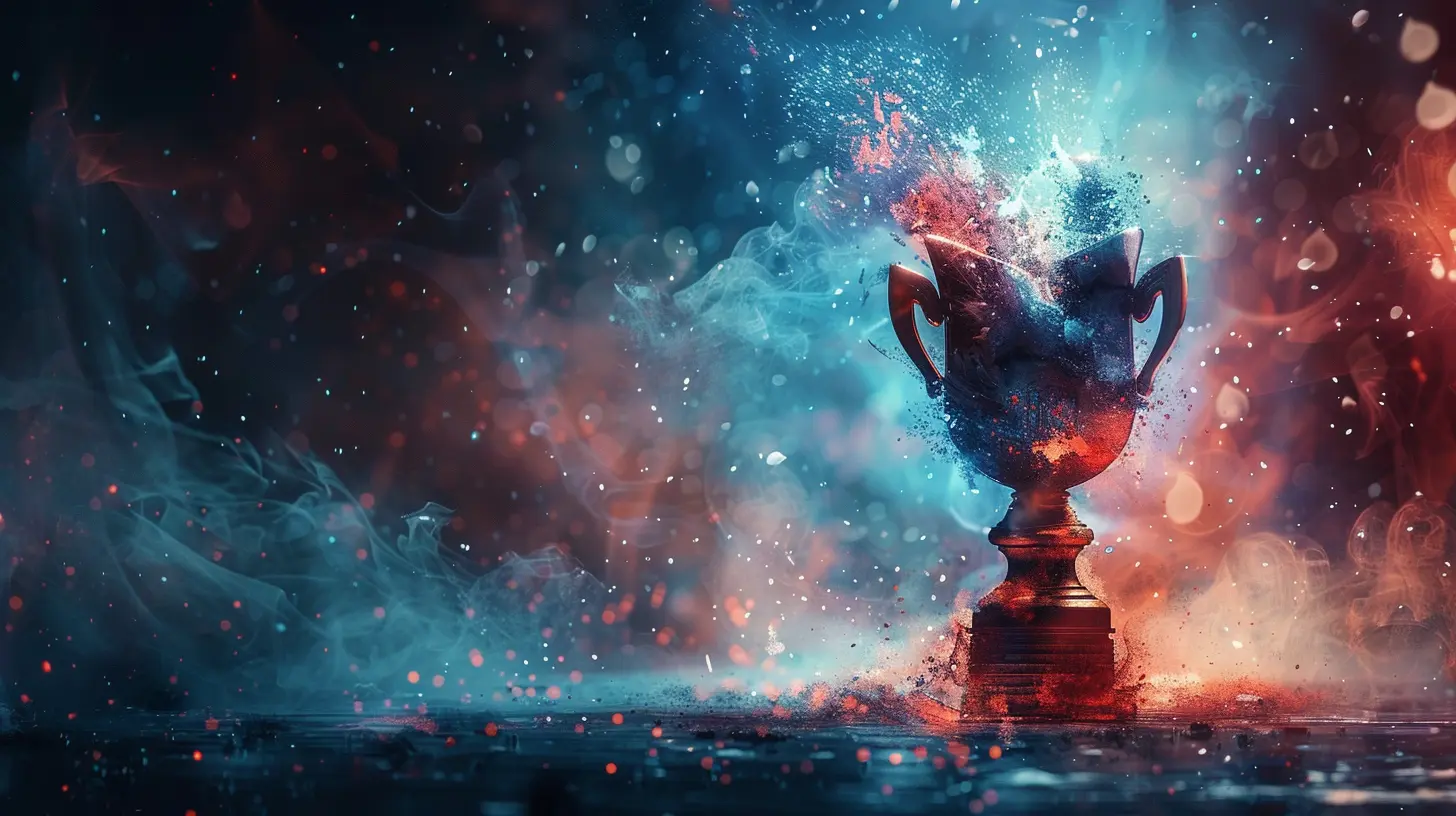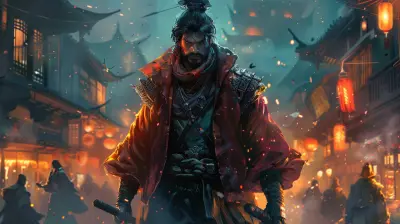Why Some Game Award Categories Are More Competitive Than Others
15 June 2025
Game award season—it's that time of year when developers, publishers, and gamers come together to celebrate the very best in gaming. But have you ever noticed something odd? Some game award categories are absolutely stacked. Like, ridiculously tight competition. Meanwhile, others feel like a walk in the park for a single nominee.
So what gives? Why are certain award categories way more competitive than others? Let’s dig into it. We’re talking popular genres, production value, evolving trends, and how the whole voting process works. By the time we’re done, you’ll look at those shiny trophies with a whole new level of understanding.
The Allure of Certain Genres
Let’s start with the obvious—some genres just pull more weight in the gaming world. Think about it: when was the last time a puzzle game or a rhythm game won Game of the Year? Exactly.Action and RPGs Rule the Roost
Genres like action, adventure, and role-playing games (RPGs) tend to dominate. Why? Because they offer immersive experiences, emotional storytelling, jaw-dropping graphics, and often, open-world exploration. These are the blockbuster titles that get the big marketing bucks and the biggest fanbases.Take the Game of the Year category—it’s almost always a showdown between high-budget RPGs like Elden Ring, The Legend of Zelda, or God of War. These games take years to develop and usually redefine what interactive storytelling can do. Naturally, they overshadow smaller titles.
Niche Genres Don't Get the Same Spotlight
On the flip side, categories like “Best Simulation Game” or “Best Family Game” often don’t get the same love. Not because those games aren’t good—but because they cater to a smaller audience and typically don’t attract media frenzy.Competitiveness is partly driven by visibility. If a category isn’t in the spotlight, it’s less likely that multiple big-name contenders are vying for the top spot.
Volume of Releases = More Competition
Here’s another key factor: how many quality games are released in a specific category each year?Indie Titles Flood Certain Categories
Take “Best Independent Game” for example. Every year, we see a surge of passionate, innovative indie games being released. And the quality? Through the roof. From fresh mechanics to heart-wrenching narratives, indie devs are pushing boundaries. That makes this category super competitive.But compare that to, say, “Best VR/AR Game.” The VR space is growing, sure, but it still doesn’t see nearly as many releases with the same level of polish. Fewer games = fewer contenders = less heat in the competition.
Audience Expectations Play a Role
Let’s not overlook the people who play these games—us, the gamers.Hype Drives Competition
Some categories come with enormous expectations. For instance, “Best Narrative” or “Best Art Direction” always catch people’s attention. These are areas where storytelling or artistic creativity truly shine, and fans are vocal about what they appreciate.When expectations are high, developers really step up. That leads to more standout entries in the category, which in turn makes the competition fiercer.
Casual Categories Aren't Under the Microscope
On the other hand, categories like “Best Sports/Racing Game” often see the same franchises nominated year after year. Fans aren’t expecting revolutionary changes in these areas. That predictability dampens the competition.Let’s be real—do you really expect FIFA, NBA 2K, and Forza to not be in the mix each time? These games are polished, sure, but they don’t always shake up the formula.
Budget and Development Time Matter
You can’t ignore the sheer resources needed to build award-winning titles. Development studios with large budgets can afford to fine-tune every pixel, every sound bite, every story beat.AAA Titles Dominate Certain Categories
The “Best Game Direction” or “Best Technical Achievement” categories are almost always populated by AAA titles. Why? Because those games have the manpower, budget, and experience to pull off complex mechanics with few flaws.You won’t easily see an indie game going toe to toe with something like Horizon: Forbidden West in terms of technical prowess. That creates a kind of dominance in these categories, and it sets a much higher bar that only a few can reach.
Evolution of Gaming Tech Drives New Challenges
Let’s talk innovation. Some categories are inherently more dynamic because the tech behind them is constantly changing.The Rapid Growth of VR and Mobile
Take “Best Mobile Game” or “Best VR/AR Game.” These platforms evolve rapidly—new hardware, new software capabilities, and user interface upgrades are common. While that opens the door for fresh ideas, it also means fewer developers can keep up. The field is smaller, so these categories may not always be as competitive.But as these platforms mature, expect the competition to ramp up fast. It’s only a matter of time before VR becomes a mainstay and brings more contenders into the ring.
Cultural Relevance Shapes the Playing Field
Sometimes a game doesn’t just launch—it becomes a cultural moment.Impact Games Are Game-Changers
Look at categories like “Games for Impact.” These are titles that aim to make a statement, touch on real-world issues, or spark important conversations. These games often come from smaller teams but with a big purpose. The emotional weight and societal relevance can make this category incredibly competitive—especially in years when multiple games tackle powerful themes.Think Celeste, Life Is Strange, or Gris. These aren't just games; they're experiences that stay with you long after the credits roll.
Voting Systems and Industry Politics
Let’s not pretend it's all sunshine and fair play. The voting process also adds complexity to the landscape.Who Votes? It Matters
Most major award shows are judged by a combination of critics, industry insiders, and sometimes public votes. Categories tied closely to public opinion—like “Most Anticipated Game” or “Best Esports Game”—can become popularity contests. That naturally boosts competition because it's not just about quality, it’s about clout.Other categories, voted on solely by industry pros, might lean toward games that innovate or push technical boundaries—even if they didn’t top the sales charts.
Publisher Influence
Big-name publishers have more marketing resources, which means more people see and talk about their games. This marketing push often correlates with nominations and wins, especially in categories with broader voter bases.It’s not exactly shady—it’s just the way the game is played.
When One Game Dominates the Year
Sometimes a single game is so groundbreaking, it gobbles up every award like Pac-Man on power pellets.The "Sweeper Effect"
When The Last of Us Part II released, it dominated multiple categories, from narrative to performance to sound design. Same thing with Elden Ring and Breath of the Wild during their release years. Their sheer excellence can crowd out other contenders, even if those games were great in their own right.While that might make the competition less intense in those years, it raises the stakes in subsequent cycles. Developers push harder to create something that can take the crown from a reigning champion.
Industry Trends Influence Category Heat
Trends play a big role in gaming. If roguelikes are in vogue (hello Hades), expect the “Best Action Game” category to be lit. If multiplayer games are having a moment (Among Us, Fall Guys), those categories see a spike in competition.Timing is Everything
A great game released late in the year might miss the awards window altogether. Or worse—it gets overshadowed by earlier blockbusters. Timing affects visibility and momentum, which directly fuels competitiveness.Games launched close to the voting deadlines often have the upper hand since they’re fresh in everyone’s minds. It’s like cramming for an exam—the last topic you study is often the one you remember most.
The Rise of Player-Driven Awards
In recent years, player-voted awards have gained more credibility. Sites like Steam and some major gaming outlets host polls where the community picks winners.Fans Drive Fierce Rivalries
When fans are in charge, get ready for tight races. Fandom wars kick in, social media campaigns start, and even developers jump in to champion their games. It’s messy, passionate, and incredibly entertaining.These awards often reflect what players truly care about—whether it’s replay value, character chemistry, or how many memes the game inspired.
Final Thoughts: Not All Trophies Are Created Equal
So here’s the deal. Some game award categories are more competitive because they’re high-profile, flooded with top-tier entries, and backed by massive player support or industry admiration. Others? They’re quieter, less crowded, or still finding their identity.But that doesn’t mean the winners in less competitive categories are any less deserving. Every game has its moment. Whether it’s an underdog indie taking the crown for Best Debut or a genre-defining RPG sweeping Game of the Year, each trophy tells a story.
And let’s be honest—we’d still watch the whole award show with popcorn in hand, cheering and groaning at every surprise win or snubbed favorite.
Because at the end of the day, it’s not just about who wins.
It’s about celebrating how far we’ve come in the world of gaming.
all images in this post were generated using AI tools
Category:
Game AwardsAuthor:

Lana Johnson
Discussion
rate this article
2 comments
Tamsin Kirkland
The disparity in competitiveness among game award categories often stems from the number of eligible titles, industry visibility, and marketing efforts behind them.
June 17, 2025 at 2:40 PM

Lana Johnson
Absolutely, the competitiveness of game award categories can significantly vary due to factors like the volume of eligible titles, their visibility in the industry, and the marketing strategies employed. This disparity highlights the complex interplay between exposure and recognition in the gaming landscape.
Kian Gilbert
Great insights! It’s fascinating to see how different categories attract varying levels of competition. I appreciate the analysis on industry trends and player expectations. Looking forward to more discussions on this topic!
June 17, 2025 at 4:39 AM

Lana Johnson
Thank you! I'm glad you found the insights valuable. I look forward to more discussions on this intriguing topic as well!


